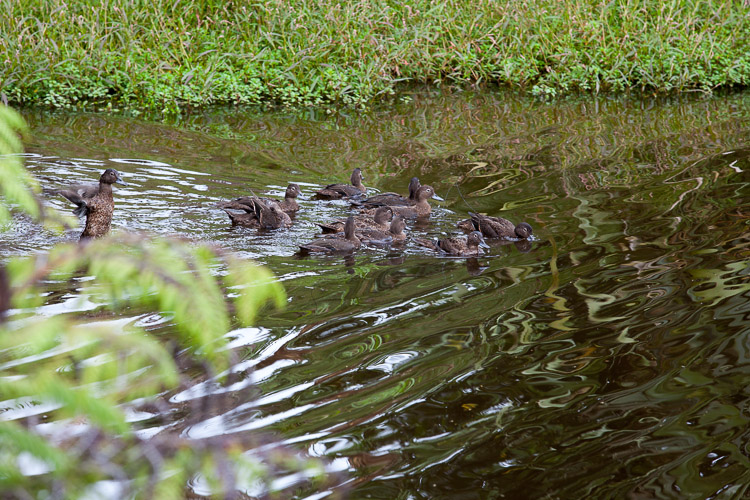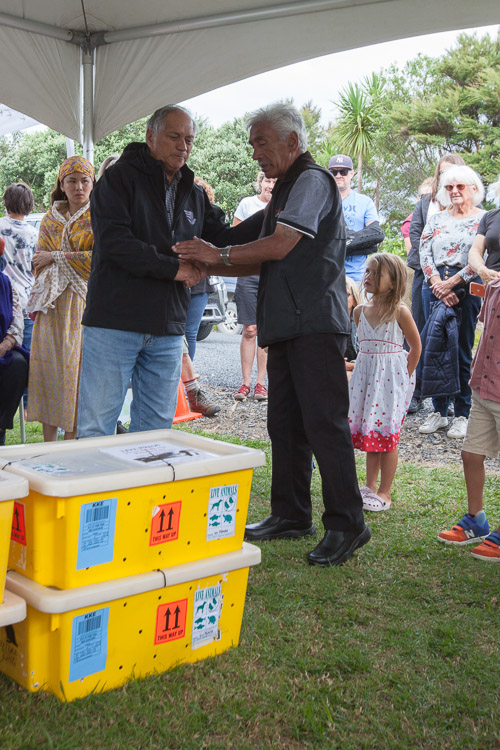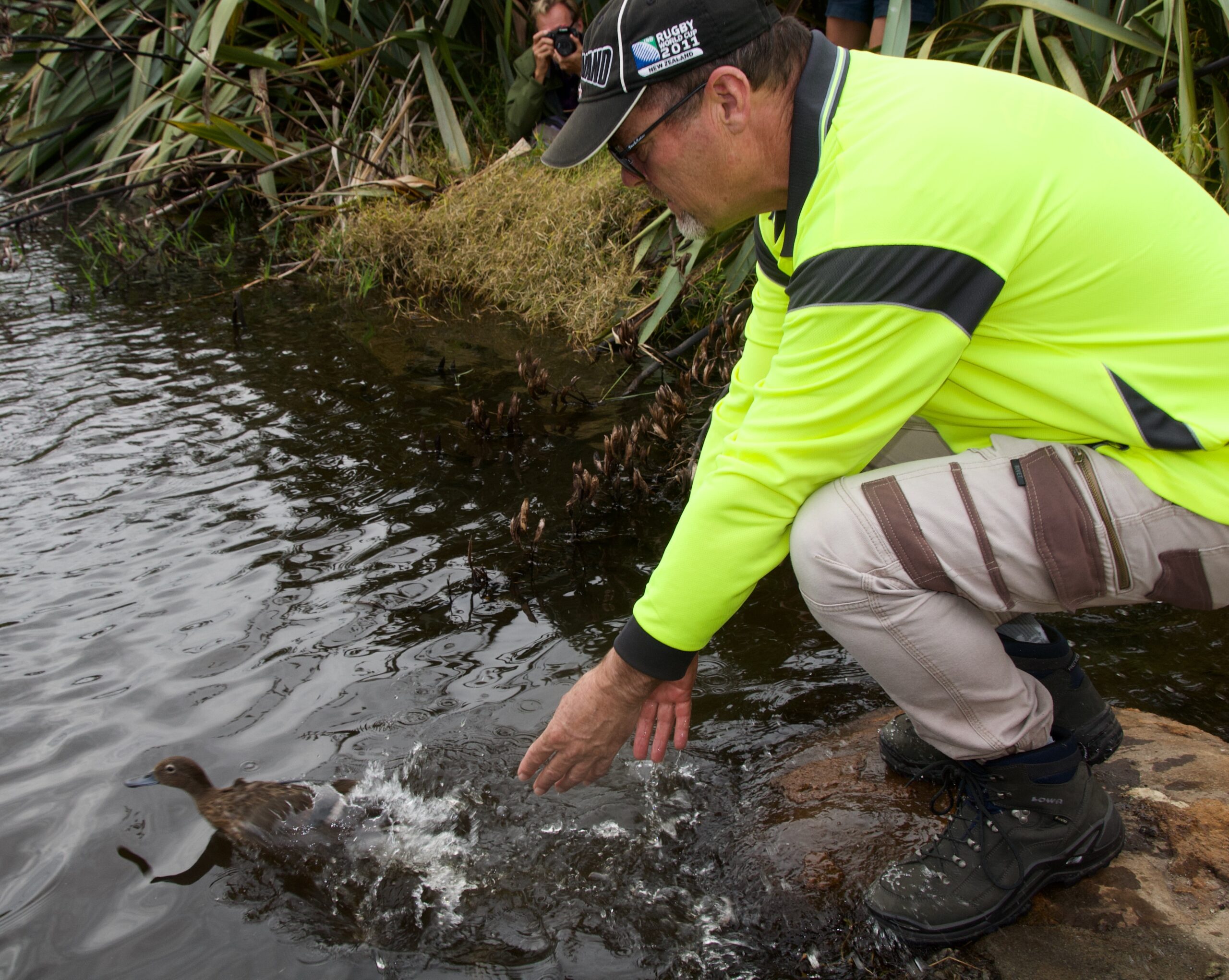A special release of rare pāteke ducks has been made possible after the removal of over 11,000 pests by the Pest Free Purerua – Mataroa Project during the last three years.

Twenty pāteke/brown teal have been released on the Mataroa Peninsula in the Bay of Islands, boosting numbers of one of New Zealand’s rarest native ducks. The translocation is part of Kiwi Coast’s work with Ngāti Torehina to remove introduced predators and restore the native wildlife of the peninsula as part of the Pest Free Purerua – Mataroa Project.
While captive bred, the pāteke trace their whakapapa/ancestry back to the Ngātiwai rohe/area. The ducks were flown up from Peacock Springs in Christchurch to the Bay of Islands courtesy of Air NZ. Members of the Ngātiwai Trust Board welcomed the pāteke at the Kerikeri Airport and accompanied them to the release site at The Landing to ensure their safe transition to their new home.
Ngāti Torehina kaumātua Hugh Rihari welcomed the rare ducks to the Mataroa Peninsula saying “This is the second batch of pāteke to be released at The Landing, the first lot was brought over by our relations from Ngati Kuta / Patukeha in 2015. It was a privilege for Ngāti Torehina to accept the 20 pāteke from Ngātiwai.”
“We would also like the thank Peter Cooper, Peter Jones and all the staff at The Landing, for the hard work, dedication and care to bring the property to the high standard we see today. The design, and vegetation planting has made it possible to bring these endangered birds to get a second chance to increase in numbers from 2,000 nationally not so long ago, to more sustainable numbers. A big shout out also to Kiwi Coast and their support staff, for the huge effort they put into pest control on the Mataroa Peninsula.

The 20 juvenile birds were released after a pōwhiri with Ngāti Torehina and Ngātiwai beside one of several ponds, watched by over 100 people keen to get a glimpse of the small brown ducks.
“We are pleased to re-establish our relationship with Ngāti Torehina and hope these pāteke thrive under their kaitiakitanga/guardianship. We thank Kiwi Coast and the efforts of the Pāteke Recovery Group who have worked hard to build populations up the east coast of Tai Tokerau/Northland, where they are now thriving in our rohe,” says Ngātiwai kaumātua Hone Rāpata.
Pāteke Recovery Group captive coordinator Kevin Evans says 12 breeders raise the ducks in captive breeding facilities from Dargaville to Invercargill. The juvenile pāteke are then taken to Peacock Springs in Christchurch where they have been pre-release conditioned.
“At Peacock Springs the birds have been kept in an aviary with an environment as close to the wild as possible and they have been trained to use the automatic feeders that have been set up at the release site. With all the pest control being carried out at The Landing, they should enjoy exploring their new location,” he says.
The release site is part of an intensive pest control network that now extends across the Mataroa Peninsula. Special emphasis is being placed on feral cat trapping as their predation frustrated previous efforts to restore the vulnerable ducks to the peninsula around ten years ago.
Kiwi Coast’s Mid North Coordinator and Project Manager of the Pest Free Purerua – Mataroa Project, Andrew Mentor, says the small dabbling ducks will be closely monitored and if they thrive up to 100 could be released on the peninsula in the next couple of years.
“Like any translocation, there is always a risk the birds might disperse from their new environment, however we will be monitoring these pāteke closely so we will quickly know if there are any issues and how we can best address them,” he says.

“We have taken every precaution to protect the birds from feral predators. We are now working closely with local landowners keen to see pāteke and other special native wildlife on the peninsula such as kiwi thrive again. Helping landowners to control their cats and dogs is part of our ongoing work – it’s a huge collaborative effort, but together we can get there!” he says.
“We are also extremely grateful for the funding and support received from Foundation North, Save the Kiwi Trust and Northland Regional Council that has helped make this all possible.”
While the ducks will be monitored, please report any sightings to andrew@kiwicoast.org.nz.


